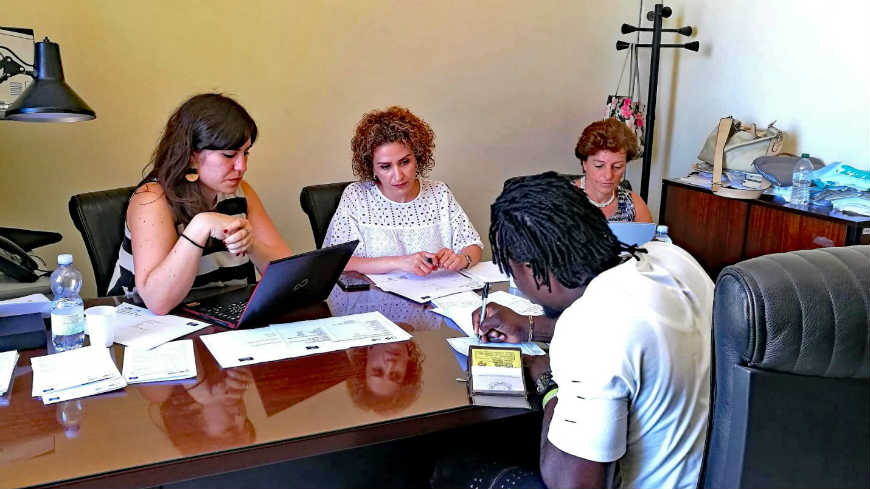On 11-15 June 2018, in Athens, Greece, in the context of the new phase (2018-2020) of the project “European Qualifications Passport for Refugees” (EQPR), 48 refugees, from 12 different countries, had their qualifications assessed during the first evaluation session. The refugees were interviewed by credentials evaluators from the national recognition centres (ENICs) of Germany, Greece, the Netherlands and Norway. ENICs of nine countries: Armenia, Canada, France, Germany, Greece, Italy, the Netherlands, Norway and the UK participate in this new phase of the project. Other partners include the Greek Ministry of Education, Research and Religious Affairs, the Italian Ministry of Education, Universities and Research and the Conference of University Rectors of Italy. The UNHCR and the Norwegian Ministry of Education also support the project.
On 2-6 July 2018, a second assessment session was held in Sardinia, Italy. 42 refugees were interviewed by credentials evaluators from the national recognition centres (ENIC/NARICs) of Armenia, France, Germany, Italy and Norway and of the universities of Cagliari and Sassari.
A total of 90 interviews have been made this year, resulting in 54 passports issued so far, as the final assessment of the candidates interviewed in Sassari is still on-going. In this phase, online technologies will be used in a greater extent for interviews, applications, and for checking the validity of the document sent to the employers, local authorities or education institutions.
“I’m confident that this project will be instrumental in ensuring that refugees can have their skills and qualifications recognised thereby allowing them to contribute to their new host societies through further education and employment”, said Tomáš Boček, the Special Representative of the Secretary General on Migration and Refugees in a video message.
The EQPR is one of the initiatives supported by the Council of Europe Action Plan on Protecting Refugee and Migrant Children in Europe (2017-2019). The aim of the Action Plan is to support member states in developing and implementing strategies that address the challenges and issues faced by refugee and migrant children. The EQPR is an initiative that contributes to the Action Plan’s objective of ensuring that refugee and migrant children are provided with an education.



